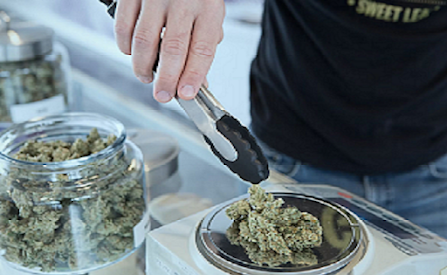From Insomnia to Sweet Dreams: How Cannabis Can Aid in Sleep Disorders
In a world that never sleeps, the prevalence of sleep disorders such as insomnia is on the rise. Sleep deprivation can have profound effects on both physical and mental health, impacting daily functioning and overall well-being. While traditional remedies and lifestyle changes are often recommended, an alternative solution has been gaining attention in recent years – cannabis. In this blog post, we'll explore the relationship between cannabis and sleep disorders, delving into the potential benefits and risks associated with using this plant to promote a restful night's sleep.
The Endocannabinoid System and Sleep:
Before we dive into the impact of cannabis on sleep, it's crucial to understand the role of the endocannabinoid system (ECS) in the body. The ECS plays a key role in regulating various physiological processes, including mood, appetite, and, relevant to our discussion, sleep. The system comprises receptors, endocannabinoids, and enzymes that work together to maintain balance (homeostasis) in the body.
Cannabis and Sleep:
Cannabis contains compounds known as cannabinoids, the most well-known being THC (tetrahydrocannabinol) and CBD (cannabidiol). These cannabinoids interact with the ECS, potentially influencing sleep patterns. Here's how:
- THC and Sleep: THC is the psychoactive compound in cannabis responsible for the "high" feeling. Research suggests that THC may have sedative effects, making it a potential aid for those struggling with insomnia. However, the relationship between THC and sleep is complex, as high doses may lead to disrupted sleep patterns and vivid dreams. It's essential to find the right balance and dosage for individual needs.
- CBD and Sleep: CBD, on the other hand, is non-psychoactive and has gained popularity for its potential therapeutic effects. Studies indicate that CBD may have anxiolytic (anxiety-reducing) and relaxing properties, which could contribute to better sleep. While CBD doesn't induce drowsiness directly, it may help alleviate factors such as anxiety or pain that can interfere with a good night's rest.
Benefits of Cannabis for Sleep Disorders:
- Insomnia Relief: Individuals suffering from chronic insomnia may find relief through the sedative effects of THC. However, it's crucial to approach THC use with caution, as tolerance and dependence can develop over time.
- Anxiety Reduction: CBD's anxiolytic properties may benefit those whose sleep disturbances are linked to anxiety. By calming the mind, CBD may promote a more relaxed state conducive to falling asleep.
- Pain Management: For individuals experiencing sleep difficulties due to chronic pain conditions, cannabis may offer relief. Both THC and CBD have demonstrated analgesic (pain-relieving) properties, potentially improving sleep quality for those dealing with discomfort.
Risks and Considerations:
- Dose Sensitivity: The effects of cannabis on sleep can be dose-dependent. Too much THC, especially in inexperienced users, may lead to increased heart rate, anxiety, and disrupted sleep. It's essential to start with a low dose and adjust accordingly.
- Tolerance and Dependence: Chronic use of THC can lead to tolerance, requiring higher doses to achieve the same effects. Additionally, dependence is a potential risk, emphasizing the importance of moderation and occasional use.
- Legal and Ethical Considerations: The legal status of cannabis varies globally and even within regions. It's crucial to be aware of local laws and regulations regarding cannabis use. Moreover, individuals should consider ethical implications and potential consequences in their personal and professional lives.
Conclusion:
As the conversation around cannabis and its potential benefits evolves, it's essential to approach its use for sleep disorders with a nuanced perspective. While some individuals may find relief from insomnia or other sleep disturbances through cannabis, others may experience adverse effects. As with any alternative remedy, consulting with a healthcare professional is paramount to ensure personalized guidance and minimize potential risks.
In the pursuit of sweet dreams, understanding one's unique needs, experimenting responsibly, and staying informed about the latest research can contribute to a more restful and rejuvenating night's sleep.




Comments
Post a Comment